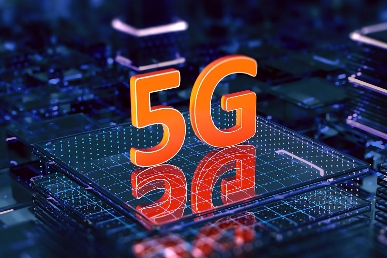
5G education and training are essential for ensuring that professionals, stakeholders, and consumers have a solid understanding of 5G technologies, their applications, and their implications.
As 5G networks continue to roll out globally, various organizations, including industry bodies, educational institutions, and private companies, offer training programs tailored to different audiences.





Here’s an overview of 5G education and training initiatives:
### 1. **Online Courses and Certifications**
Various platforms offer online courses and certifications related to 5G technology, such as:
– **Coursera, edX, and Udemy:** These platforms frequently have courses on 5G topics ranging from the basics of mobile networks to advanced technical training.
– **Telecom Training Organizations:** Entities like the Telecommunications Industry Association (TIA) and the Institute of Electrical and Electronics Engineers (IEEE) provide specialized training on network design, engineering, and standards.
### 2. **University Programs**
Many universities have developed specialized programs focusing on telecommunications and network engineering, which include:
– **Bachelor’s and Master’s Degrees:** Programs in telecommunications, computer science, or electrical engineering often include courses on 5G and advanced wireless technologies.
– **Research Opportunities:** Universities may offer research opportunities related to 5G, allowing students to work on projects that advance the field.
### 3. **Industry Training and Workshops**
Industry associations and stakeholders provide workshops, seminars, and training sessions targeting professionals already working in the telecommunications sector:
– **5G Industry Council:** Organizations such as the Telecommunications Industry Association (TIA) offer workshops and training on the implementation and management of 5G technology.
– **Vendor-Specific Training:** Companies manufacturing network equipment, like Cisco, Ericsson, and Nokia, often provide training programs focused on their specific 5G solutions and technologies.
### 4. **Professional Development Programs**
Programs specifically designed for continuous professional development are available, focusing on the transitioning workforce in telecommunications:
– **Webinars & Seminars:** Many organizations host online and in-person webinars to cover specific 5G trends, technologies, and business applications.
– **Conferences:** Industry events and conferences frequently offer sessions dedicated to 5G topics, allowing participants to stay current with the latest developments and practices.
### 5. **Government and NGO Initiatives**
Some governments and non-governmental organizations recognize the importance of a knowledgeable workforce to enable a successful 5G rollout:
– **Funding and Sponsorship Programs:** Initiatives may be created to fund training programs or workshops in underserved communities or for specific target groups.
– **Public Outreach:** Governments may also engage in public education campaigns to inform consumers about the benefits and risks associated with 5G technology.
### 6. **Learning Materials and Resources**
Many organizations have developed a range of learning materials, including:
– **White Papers and Reports:** Research documents that provide insights and analysis regarding 5G technology, standards, and its socio-economic impact.
– **Web-based Resources:** Websites dedicated to 5G education, including blogs, videos, and case studies.
### 7. **Hands-On Training and Labs**
Practical, hands-on experience is crucial in learning new technologies like 5G. Some education providers offer:
– **Simulation Labs:** Virtual labs allow users to interact with 5G network simulations to understand network operations and management.
– **Field Trials:** Partnerships with telecom operators or equipment manufacturers may enable students or trainees to participate in real-world projects.
### Conclusion
Education and training in 5G technologies are crucial for building the necessary skills and knowledge to support a successful transition to 5G networks. Diverse offerings—ranging from formal academic programs to industry-led workshops and certifications—help ensure that the workforce is equipped to leverage the opportunities presented by 5G, facilitating innovation across numerous sectors from telecommunications to healthcare to smart cities. As 5G continues to evolve, ongoing education will remain a priority for both professionals and organizations engaged in this transformative technology.


Leave a Reply